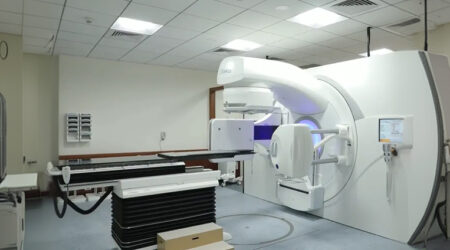Hepatology in Indore
Expert Care for Liver Disorders: Your Path to Optimal Liver Health
Jupiter Hospital boasts a dedicated unit for liver care, staffed with highly specialised liver specialists who excel in Hepatology. This subspecialty of gastroenterology focuses on the diagnosis and treatment of liver, gallbladder, and pancreas-related issues. We employe holistic approach to provide you the needful treatment, making us your trusted destination for Hepatology treatment in Indore.
Categories of Liver Diseases
At Jupiter Hospital, we specialise in the diagnosis and treatment of a range of liver diseases and disorders. Our hepatologist is dedicated in delivering Liver treatment at Indore. One of the key conditions we focus on is hepatitis, Liver cirrhosis and Liver failure.
Team
Looking for the Hepatology in Indore
Hepatitis is a condition characterised by severe liver inflammation, which can result from injury or infection. It presents with symptoms such as jaundice, loss of appetite, abdominal pain, indigestion, and nausea. Hepatitis is broadly categorised into two groups:
- Acute Hepatitis: This typically lasts less than 6 months and it often resolves on its own. In few patients it requires special care as injury can be severe and can lead to Liver failure.
- Chronic Hepatitis: This form usually lasts more than 6 months and can progress to like cirrhosis and liver failure if left untreated.
Understanding Different Types of Hepatitis
Hepatitis comes in several types:
- Autoimmune Hepatitis: This condition emerges when the immune system targets liver cells, resulting in severe inflammation and swelling. It does not spread through direct contact but is believed to occur due to the immune system's assault on the liver cells, often influenced by a genetic predisposition.
- Hepatitis A: A brief infection which rarely leads to complications, Hepatitis A is preventable through vaccination. It is typically transmitted through the faecal-oral route, mainly via contaminated food, water, or close personal contact with an infected person.
- Hepatitis B: This virus can lead to both acute and chronic Hepatitis , with severe cases potentially causing liver failure, cirrhosis, or cancer. It is transmitted through contact with infected blood, bodily fluids, or from an infected mother to her newborn during childbirth; also transmitted through sexual contact and needle-sharing.
- Hepatitis C: Marked by long-term infection and often asymptomatic, it can potentially lead to cirrhosis, scarring, or cancer. Mainly transmitted through contact with infected blood, often due to needle-sharing among intravenous drug users, and less commonly through sexual contact or from an infected mother to her child.
- Hepatitis D (Delta Hepatitis): Exclusive to individuals with Hepatitis B, this requires the presence of the Hepatitis B virus for transmission. It is primarily spread through contact with infected blood or other bodily fluids. It is rarely seen in Indian subcontinent.
- Hepatitis E: Caused by the hepatitis E virus (HEV), this is typically transmitted through the faecal-oral route, often via contaminated water. It can also be transmitted through undercooked or raw pork.
Diagnosing Hepatitis at Jupiter Hospital
Our hepatologists use a range of diagnostic techniques, such as:
- Physical examination
- Blood tests
- Ultrasound
- Transient Elastography
- MRI
- CT scan
- Liver biopsy
At Jupiter Hospital, treatment for hepatitis is personalised based on the type of hepatitis and its stage of advancement. Our approach involves lifestyle adjustments and medication. In cases of severe liver damage, our specialists might suggest a liver transplant.
Alcoholic Fatty Liver Disease is life threatning disease. This condition is marked by an excessive buildup of fat in the liver, primarily due to heavy alcohol consumption. Progression of this condition results in serious complications such as liver enlargement, alcoholic hepatitis, and alcoholic cirrhosis leading to liver failure.
Exploring Risk Factors
Alcoholic fatty liver disease is influenced by various risk factors, which include:
- Obesity
- Malnourishment
- Personal history of chronic viral hepatitis
- Genetic predisposition
Accurate Diagnosis and Hepatology Treatment in Indore
Our approach to hepatic steatosis is facilitated by precise diagnosis initially, which may consist of the following:
- Reviewing medical history
- Comprehensive physical examination
- Blood tests
- Ultrasound
- CT scan
- MRI
- Liver biopsy
The key to reversing alcoholic fatty liver disease is to make the crucial decision to stop drinking. In addition, our team provides treatments, including lifestyle adjustments, weight loss, and a personalised dietary plan.
At Jupiter Hospital in Indore, we also focus on diagnosing and treating non-alcoholic fatty liver disease, commonly known as NAFLD. This term covers various conditions leading to fat accumulation in the liver. The condition can worsen to be more severe, a form referred to as steatohepatitis or NASH (Non-Alcoholic Steatohepatitis). Most individuals with NAFLD do not display prominent symptoms. However, children with NAFLD may experience abdominal discomfort and fatigue.
Common Risk Factors
Non-alcoholic fatty liver disease is linked to several common risk factors, including:
- Obesity
- Insulin resistance
- High blood sugar
- Elevated triglyceride levels
- High cholesterol
- Polycystic Ovary Syndrome (PCOS)
- Sleep apnea
- Type 2 diabetes
- Hypothyroidism
- Hypopituitarism
Jupiter Hospital’s Diagnosis and Treatment
Our dedicated team of hepatologists employs various diagnostic techniques to accurately identify NAFLD, such as:
- Blood tests
- Abdominal ultrasound
- CT scan
- Transient elastography
- MRI
- Liver biopsy
We prioritise your needs during the treatment for NAFLD. Effective management is ensured using healthy lifestyle changes and, when necessary, prescribed medications, at Jupiter Hospital’s Hepatology treatment in Indore.
At Jupiter Hospital, we also address liver disorders, including autoimmune liver diseases. These conditions arise from abnormalities in the immune system and encompass various liver ailments. Three of the most common autoimmune liver diseases are:
- Autoimmune Hepatitis: This condition involves liver inflammation when the immune system erroneously targets healthy liver cells, influenced by various environmental and genetic factors.
- Primary Biliary Cholangitis: This condition entails the gradual deterioration of bile ducts in the liver, with a higher incidence in women than in men.
- Primary Sclerosing Cholangitis: This condition is marked by inflammation and scarring of both intrahepatic and extrahepatic bile ducts, often leading to an unhealthy accumulation of bile.
Precision of Our Diagnosis and Treatment in Indore
A set of tests is performed to diagnose autoimmune liver diseases, including:
- Anti-liver/kidney microsomal antibodies
- Anti-mitochondrial antibodies
- Antinuclear antibodies
- Anti-smooth muscle antibodies
- Serum IgG
Our team of healthcare professionals will select the most appropriate diagnostic approach tailored to your specific condition. Our treatment for autoimmune liver diseases consists of a treatment plan to meet your specific needs. It involves the use of medications and other therapeutic measures to effectively manage the condition.
Genetic liver diseases
Our commitment extends to addressing various liver disorders, including genetic liver diseases. These conditions are inherited across generations and often necessitate specialised treatment.
Exploring Genetic Liver Diseases
Genetic liver diseases encompass a group of conditions that are inherited through generations. Two of the most common genetic liver diseases are:
- Hemochromatosis: This condition involves the excessive buildup of iron in the body, which can be highly toxic and lead to significant damage in several tissues and organs. If left untreated, it can progress to cirrhosis or even liver cancer.
- Wilson's Disease: This rare disorder is characterised by an excessive accumulation of copper in the body, typically affecting individuals aged 5 to 35 years. The condition primarily presents with symptoms related to both the brain and the liver.
Treatment Using Appropriate Diagnosis
For diagnosing genetic liver diseases, our specialists use various diagnostic methods, including:
- Blood tests
- MRI
- CT scan
- Ultrasound
Thorough review of personal and family medical history
We provide treatment for genetic liver diseases, which involves prescribed medication to effectively manage the condition. In severe cases, a liver transplant may be required, and our expert team will assist you through the process.
Jupiter Hospital is committed to offering treatment for liver cirrhosis, an advanced and end-stage liver disease marked by extensive scarring in liver tissue. The damage sustained is permanent and irreversible, causing a gradual decline in liver function.
Comprehending the Condition
Several risk factors are linked to the development of cirrhosis, such as:
- Excessive alcohol consumption
- Viral hepatitis
- High blood sugar
- Obesity
- Family history of liver disease
Treatment and Diagnosis
Our skilled team utilises a range of diagnostic tools to precisely identify cirrhosis, which includes:
- Abdominal CT scan
- Abdominal ultrasound
- Elastography
- MRI
- Magnetic resonance cholangiopancreatography (MRCP)
- Liver biopsy
- Liver function tests
Although cirrhosis has no complete cure, our team offers hepatology treatment aimed at slowing disease progression and alleviating its symptoms.
Patients Speak
Hear the heartwarming stories of patients overcoming difficult afflictions
















 View Map
View Map Book an Appointment
Book an Appointment Find a Doctor
Find a Doctor Health Check-up
Health Check-up








 Find a Doctor
Find a Doctor Health Checkup
Health Checkup Book an Appointment
Book an Appointment